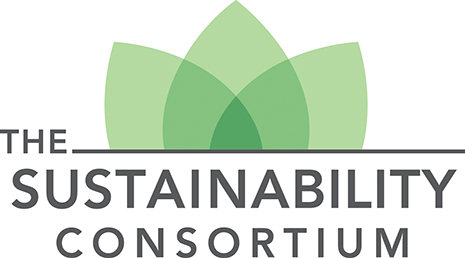
FAYETTEVILLE, Ark. – Scientific American has ranked the Sustainability Consortium, which is jointly administered by the University of Arkansas and Arizona State University, among the top ten World Changing Ideas for 2012. The consortium is a global organization of businesses, universities and nonprofit organizations that develops science-based tools to advance the measurement and reporting of consumer product sustainability.
The magazine issue features 10 “innovations that are radical enough to change our lives.” The editors describe the ideas as “game changers” and “not pie-in-the-sky notions but practical breakthroughs that have been proved or prototyped and are poised to scale up greatly.”
“We are honored, and we humbly agree,” said Jon Johnson, professor of management in the Sam M. Walton College of Business and the Sustainability Consortium’s co-founder and academic director. “That has always been our focus all along – to develop robust, science-based knowledge and tools that companies all over the world can use. It was our hope that our work would effect real change – economically, socially and environmentally. We are seeing that now, and others are starting to notice, which is gratifying.”
The Sustainability Consortium was recognized as a superior sustainability measurement and reporting system because of its comprehensive nature and cross-sector approach. The consortium will publish information for more than 100 product categories in 2012. The organization focuses on the areas of food, beverage, agriculture, electronics, toys, home and personal care, paper, pulp and forestry, and packaging. An additional group focused on clothing, footwear and textiles will begin working in February 2013.
“The consortium’s ratings will factor in closely held data on emissions, waste, labor practices, water usage and other sensitive factors,” said Adam Piore, who wrote the article for Scientific American. “The data should make the index more comprehensive than others.”
Subscribers may read the full article at the Scientific American website.
The Sustainability Consortium is an independent organization of diverse global participants that work collaboratively to improve consumer product sustainability. The consortium develops transparent methodologies, tools and strategies for innovation of products and supply networks that address environmental, social and economic imperatives. The organization includes more than 90 members, including nonprofit organizations, universities and businesses that employ more than 57 million people and whose combined revenues total more than $1.5 trillion.
Arizona State University and the University of Arkansas jointly co-founded and administer the Sustainability Consortium, with additional operations at Wageningen University in The Netherlands. The consortium will soon begin operations in China as well.
Johnson is holder of the Walton College Professorship in Sustainability. In addition to his position as academic director of the Sustainability Consortium, he founded the university's Applied Sustainability Center.
Topics
Contacts
Jon Johnson, professor, management
Sam M. Walton College of Business
479-575-6227,
Matt McGowan, science and research communications officer
University Relations
479-575-4246,